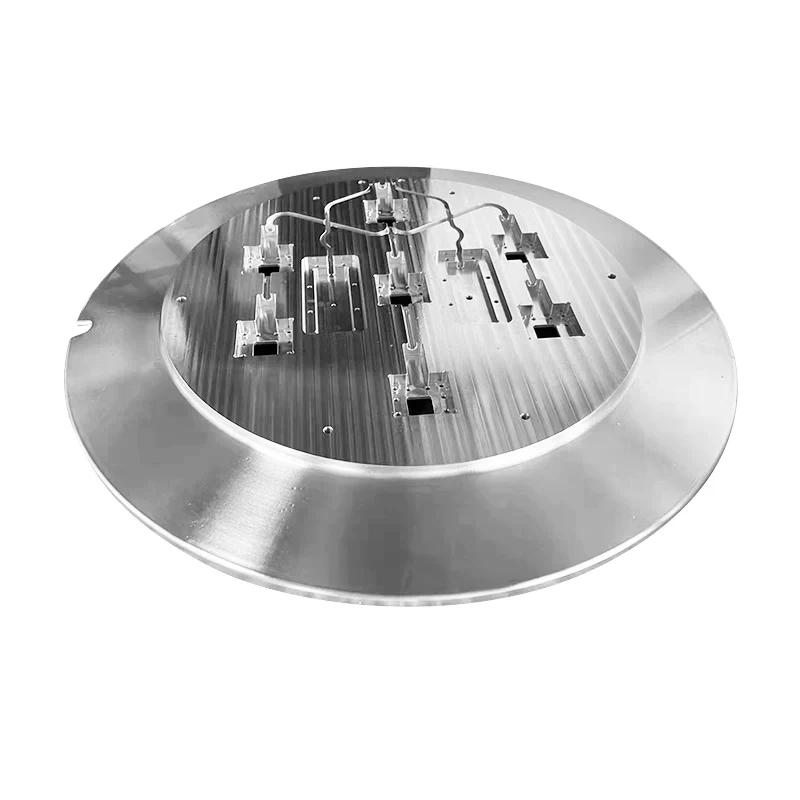- English
- Español
- Português
- русский
- Français
- 日本語
- Deutsch
- tiếng Việt
- Italiano
- Nederlands
- ภาษาไทย
- Polski
- 한국어
- Svenska
- magyar
- Malay
- বাংলা ভাষার
- Dansk
- Suomi
- हिन्दी
- Pilipino
- Türkçe
- Gaeilge
- العربية
- Indonesia
- Norsk
- تمل
- český
- ελληνικά
- український
- Javanese
- فارسی
- தமிழ்
- తెలుగు
- नेपाली
- Burmese
- български
- ລາວ
- Latine
- Қазақша
- Euskal
- Azərbaycan
- Slovenský jazyk
- Македонски
- Lietuvos
- Eesti Keel
- Română
- Slovenski
- मराठी
- Srpski језик
What materials are commonly used to create precise inserts?
In the world of manufacturing, precision is everything. Whether it's a complex aerospace component or a high-performance automotive part, the tools and materials used in production must withstand extreme conditions while maintaining high accuracy. Precise inserts—small, replaceable components embedded in machinery or tools—are crucial to ensuring this level of precision and performance. Understanding the materials used to create precise inserts is key to understanding how they affect performance.

What Are Precise Inserts?
A precise insert is a small component that is often embedded into a base material or part. These inserts are designed to enhance the functionality of the base material, allowing for improved wear resistance, thermal stability, or the ability to handle high-pressure operations. They are commonly used in industries such as automotive, aerospace, and machining to extend tool life and improve overall performance.
Typically, inserts are made from materials that are extremely hard, durable, and resistant to wear and corrosion. The choice of material depends on the specific requirements of the application, including the operational conditions and the performance expectations.
Common Materials Used for Precise Inserts
The materials selected for precise inserts play a critical role in their overall effectiveness. Below are some of the most common materials used to create these inserts:
1. Carbide (Tungsten Carbide)
Carbide inserts, particularly tungsten carbide, are among the most widely used materials for precise inserts. Tungsten carbide is known for its remarkable hardness, making it ideal for cutting tools and inserts that need to withstand high wear and extreme conditions.
- Performance Impact: Tungsten carbide inserts can resist high temperatures and abrasive wear, making them perfect for use in machining hard metals or materials with high hardness. They offer a long tool life and improved cutting efficiency.
2. Ceramic
Ceramic materials, such as silicon nitride and aluminum oxide, are also commonly used in precise inserts. Ceramics are hard and can operate effectively at high temperatures, making them ideal for cutting and grinding applications.
- Performance Impact: Ceramic inserts offer high thermal resistance, allowing them to perform well in high-speed machining and under heat stress. They are particularly suited for applications that require high cutting speeds, as they maintain their sharpness for longer periods compared to metals.
3. Cermet
Cermet, a combination of ceramic and metal, combines the hardness of ceramics with the toughness of metals. Common cermet materials include titanium carbide and tungsten carbide-based compounds.
- Performance Impact: Cermet inserts provide an excellent balance between hardness and toughness, offering wear resistance while reducing the likelihood of cracking or chipping during operations. These inserts are ideal for machining operations where both high hardness and toughness are necessary, such as in the automotive or aerospace industries.
4. High-Speed Steel (HSS)
High-speed steel (HSS) is a durable material used in tools and inserts that need to perform under high temperatures and resist wear over time. While not as hard as carbide, HSS retains its strength at elevated temperatures.
- Performance Impact: HSS inserts are often used for applications that involve moderate cutting speeds and temperatures. They are favored for their versatility, toughness, and ability to withstand repeated heating and cooling cycles without losing their integrity.
5. Polycrystalline Diamond (PCD)
Polycrystalline diamond (PCD) inserts are made from synthetic diamond particles that are sintered under high pressure and temperature. PCD is known for its incredible hardness and wear resistance.
- Performance Impact: PCD inserts are ideal for machining hard, abrasive materials such as composites, aluminum alloys, and non-ferrous metals. Their extreme hardness allows for highly precise cuts, and they provide an outstanding lifespan, especially when working with materials that cause rapid wear on conventional tools.
6. Cobalt-Alloyed Steel
Cobalt-alloyed steel is a material that includes cobalt mixed with steel to improve strength, hardness, and resistance to wear and high temperatures. This material is often used in aerospace and automotive applications where tools must endure extreme conditions.
- Performance Impact: The addition of cobalt significantly enhances the wear resistance and thermal stability of the steel, making cobalt-alloyed steel inserts effective in applications where high performance is required over prolonged periods. They also maintain their sharpness better than standard steels at elevated temperatures.
The choice of material for precise inserts is crucial in determining their performance and longevity. Whether it’s the hardness and wear resistance of tungsten carbide, the thermal stability of ceramics, or the toughness of cobalt-alloyed steel, each material brings distinct advantages to specific applications.
By selecting the right material, manufacturers can ensure optimal performance, extend tool life, and enhance the efficiency of their operations. Understanding these materials and their properties will help companies make informed decisions, ensuring their precise inserts meet the demanding requirements of their industries.
Moldburger Mold Industry Co., Ltd. is a global supplier that focuses on product moldbase and standard part, cnc parts, rapid prototypes, manufacturing, sales and comprehensive solutions. With decades of accumulated rich experience, it has strengthened the internal implementation of advanced IS09000, 16949, ERP and other management systems. Visit https://www.moldburger.com/ to discover our latest products. If you need assistance, you can get in touch with us at andraw@moldburger.com.





